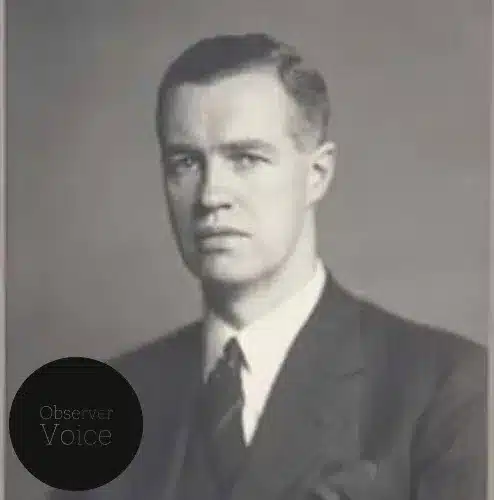Alexander Robertus Todd: A Nobel Laureate’s Journey Through Chemistry

Alexander Robertus Todd (2 October 1907 – 10 January 1997) was a British biochemist, who won the 1957 Nobel Prize for Chemistry for his research into nucleotides, nucleosides, and nucleotide coenzymes.
Life and Career
He was born on 2 October 1907 in Cathcart, Scotland. In 1928, he graduated with a BSc from the University of Glasgow. In 1931, he got his Ph.D. in chemistry from Johann Wolfgang Goethe University in Frankfurt am Main. In 1933, he earned another doctorate from Oriel College, Oxford. He worked at the Lister Institute, the University of Edinburgh (staff, 1934–1936), and the University of London, where he became a Reader in Biochemistry.
Todd spent six months at the California Institute of Technology as a visiting professor in 1938 and eventually declined to join the faculty. He became the Director of the University of Manchester’s Chemical Laboratories in 1938, where he studied nucleosides, compounds that form the structural units of nucleic acids (DNA and RNA). He was appointed to the 1702 Chair of Chemistry in Cambridge in 1944 and stayed there until 1971. In 1949, he synthesized adenosine triphosphate (ATP) and flavin adenine dinucleotide (FAD).
He was a visiting professor at the University of Chicago in 1948, and the University of Sydney in 1950. From 1952 to 1964, he was the chairman of the United Kingdom’s advisory committee on scientific policy. In 1977, he became a member of the Order of Merit, and he was President of the Royal Society from 1975 to 1980. In 1981, Todd was one of the founding members of the World Cultural Council. Alexander Robertus Todd died on 10 January 1997 in Oakington, England.
Major works
At Manchester, he started working on nucleosides, compounds that form DNA and RNA. In 1949, he synthesized adenosine triphosphate (ATP), which helps living organisms use energy. Other important compounds he synthesized include flavin adenine dinucleotide (FAD) in 1949 and uridine triphosphate in 1954. He figured out how vitamin B12 works in 1955, although Dorothy Hodgkin and her team determined the final formula. He later worked on vitamin B1 and vitamin E, anthocyanins (the pigments in flowers and fruits), insects (aphids, beetles), and marijuana and hashish alkaloids.
Awards and Legacy
He was knighted in 1954, made a life peer in 1962, and a member of the Royal Order of Merit in 1977. He won the 1957 Nobel Prize for Chemistry for his research into nucleotides, nucleosides, and nucleotides.
Observer Voice is the one stop site for National, International news, Sports, Editor’s Choice, Art/culture contents, Quotes and much more. We also cover historical contents. Historical contents includes World History, Indian History, and what happened today. The website also covers Entertainment across the India and World.

